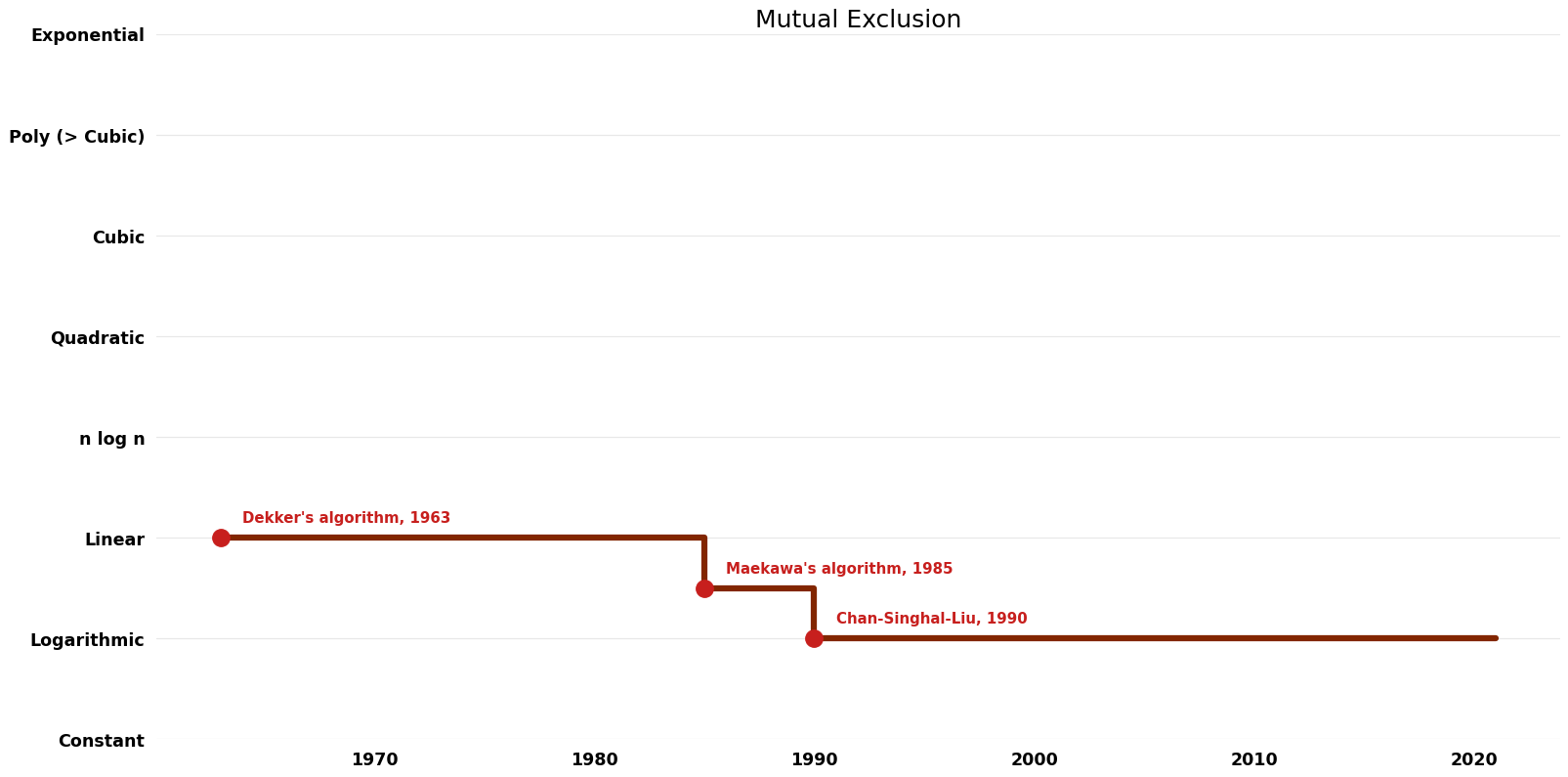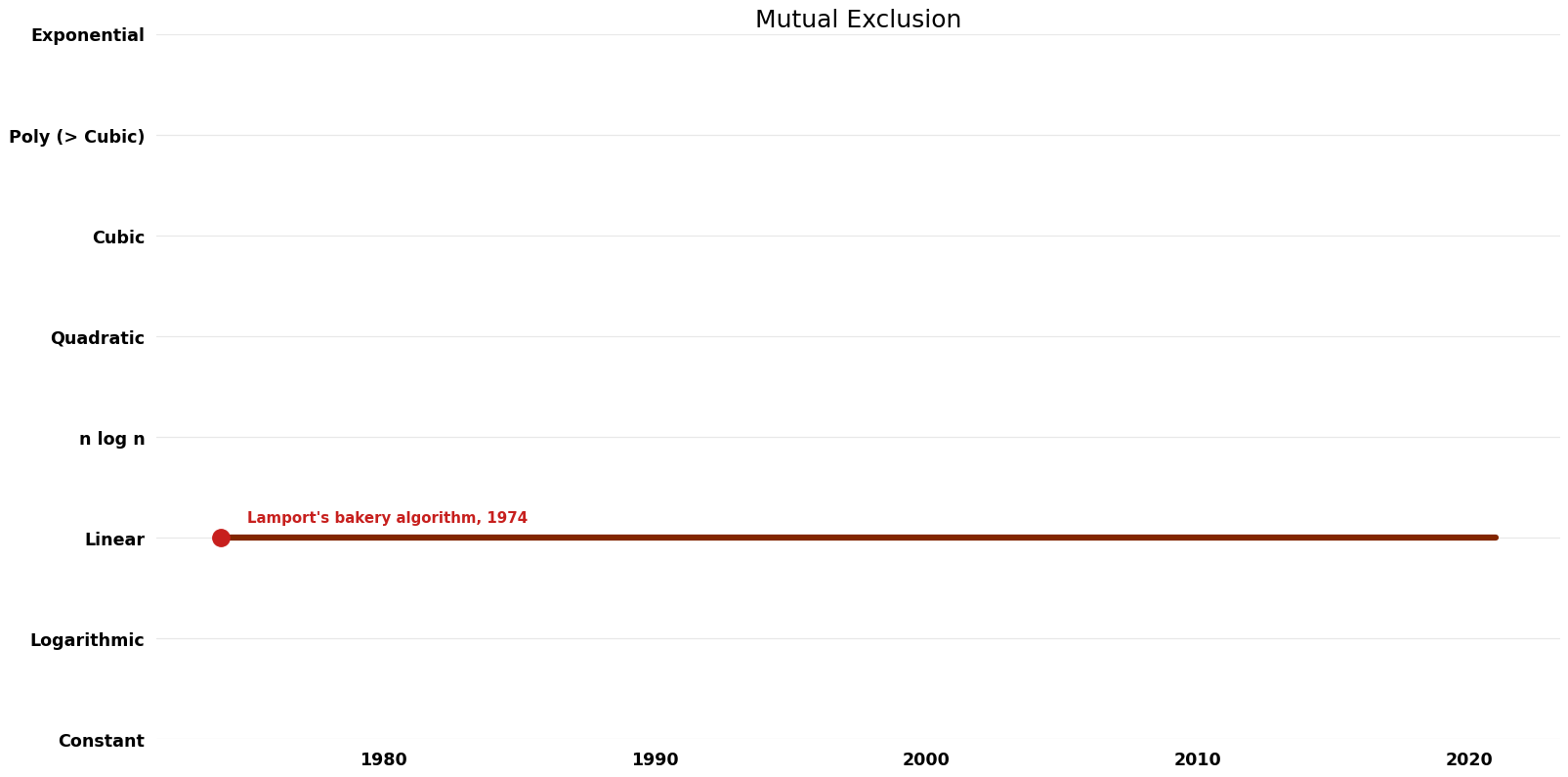Mutual Exclusion: Difference between revisions
Jump to navigation
Jump to search
No edit summary |
No edit summary |
||
| Line 6: | Line 6: | ||
== Parameters == | == Parameters == | ||
n: number of processors? | |||
== Table of Algorithms == | == Table of Algorithms == | ||
Revision as of 13:02, 15 February 2023
Description
Mutual exclusion is a property of concurrency control; which is instituted for the purpose of preventing race conditions.
Parameters
n: number of processors?
Table of Algorithms
| Name | Year | Time | Space | Approximation Factor | Model | Reference |
|---|---|---|---|---|---|---|
| Lamport's bakery algorithm | 1974 | $O(n)$ | $O({1})$ per process, $O(n)$ total? | Exact | Deterministic | Time & Space |
| Szymanski's algorithm | 1988 | $O(n)$ | $O({1})$ per process, $O(n)$ total? | Exact | Deterministic | Time & Space |
| Taubenfeld's black-white bakery algorithm | 2004 | $O(n)$ | $O({1})$ per process, $O(n)$ total? | Exact | Deterministic | Time & Space |
| Maekawa's algorithm | 1985 | $O(n^{0.5})$ | $O({1})$ per process, $O(n)$ total? | Exact | Deterministic | Time & Space |
| Raymond's algorithm | 1997 | $O(logn)$? (originally this had $O(n)$) | $O({1})$ per process, $O(n)$ total? | Exact | Deterministic | Space |
| Suzuki-Kasami's algorithm | 1985 | $O(n)$? (originally this had $O(logn)$) | $O({1})$ per process, $O(n)$ total? | Exact | Deterministic | Time & Space |
| Peterson's algorithm | 1981 | $O(n)$ | $O(n)$ total | Exact | Deterministic | Time |
| Naimi-Trehel's algorithm | 1996 | $O(logn)$ | $O({1})$ per process, $O(n)$ total? | Exact | Deterministic | Time |
| Chan-Singhal-Liu | 1990 | $O(logn)$ | $O({1})$ per process, $O(n)$ total? | Exact | Deterministic | Time |


